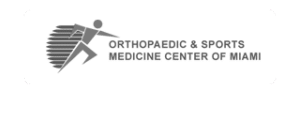Expert Medical Billing and Credentialing Services. Boost Revenue and Streamline Operations
Boost Your Revenue with Expert Medical Billing and Credentialing Services - Get Paid Faster and Maximize Your Practice's Success!
- Scroll Down
Medical Billing and Credentialing Services: Everything You Need To Know About Healthcare Billing

Whether you’re a medical hospital employee or run a private facility, it is essential to stay updated about the advanced credentialing requirements for potential payers. We say this because patients have plenty of options nowadays, and when you know how to meet all the contract requirements. It helps you stay relevant to the payers in this industry.
You’re a healthcare provider, and you need to look for ways to broaden your patient base. Keep in mind that the more patients your medical facility will have, the more profit it will make. And if you want to become an affordable quality healthcare provider, you need to win the trust of reputed insurance companies in the medical domain.
Fulfilling the credentialing requirements of insurance companies is one way to do that. Offering credentialing services enables you to expand your patient base and reduce the patient’s need to choose another healthcare provider.
Want to learn more about medical billing and credentialing services? Keep scrolling.
Medical Billing and Credentialing- What is the Connection?
Medical billing and credentialing are typically two interconnected processes in the healthcare industry. While they serve different purposes, they have many similarities. Both medical billing and credentialing work together to ensure accurate and efficient revenue cycle management.
Let’s discuss the medical billing and credentialing separately to better understand them.
Medical Billing
Medical billing is all about submitting claims for reimbursement of healthcare services provided to patients. In general, it includes coding procedures, documenting diagnoses, generating bills, and submitting claims to insurance companies or patients. The goal of medical billing is to accurately document and communicate the services rendered to obtain proper reimbursement.
Credentialing Services
Credentialing is the process healthcare providers such as physicians, nurse practitioners, or therapists verify and validate their qualifications, skills, education, training, and professional background. It involves gathering and verifying credentials, licenses, certifications, and other documentation to establish the provider’s credibility and competence in delivering healthcare services.
What is the connection?
The services are interconnected in terms of offering assurance that healthcare providers are properly authorized and credentialed to deliver services and that the claims for those services are accurately processed and reimbursed.
Here’s how they relate:
Insurance Reimbursement
Insurance companies require healthcare providers to be credentialed in order to receive reimbursement for the services they provide. The credentialing process verifies the provider’s qualifications and ensures they meet the insurance company’s standards. Without proper credentialing, the reimbursement process may be delayed or denied.
Provider Enrollment Services
In many cases, credentialing often includes the enrollment process, where providers are enrolled with insurance networks or plans. Medical billing requires it as it establishes the contractual relationship between the healthcare provider and the insurance company, allowing for the submission and processing of claims.
Accurate Coding and Documentation
It is worth noting that medical billing relies on accurate coding and documentation of the services provided. When your healthcare providers are credentialed, it ensures patients that the medical staffs they’re consulting possess the necessary knowledge and skills to accurately code procedures and document diagnoses. This enhances the accuracy of medical billing and reduces the risk of claim denials or coding errors.
Compliance with Regulations
Both medical billing and credentialing require adherence to various healthcare regulations, such as HIPAA, billing guidelines, and industry standards. Credentialing basically verifies that providers meet these regulatory requirements, while medical billing ensures that claims are submitted in compliance with the applicable regulations.
That is to say, medical billing and credentialing are interconnected processes that work together to support accurate reimbursement and revenue cycle management. Credentialing verifies the qualifications and authorization of healthcare providers, enabling them to deliver services and participate in insurance networks.
Medical billing depends on the credentialing process to ensure proper reimbursement by accurately documenting and submitting claims for the services provided. Together, they contribute to efficient and effective revenue cycle operations in the healthcare industry.
Benefits of Hiring Medical Billing and Credentialing Services
As a healthcare provider, you can reap many benefits by hiring medical billing and credentialing services. We have enlisted a few of the key advantages of outsourcing these services:
Specialization and Skills
Medical billing and credentialing services specialize in these areas and have dedicated teams with extensive knowledge and expertise. They stay updated on the latest coding guidelines, insurance policies, and regulatory changes, ensuring accurate billing and credentialing processes.
Outsourcing to professionals allows your healthcare organization to leverage its specialized skills and focus on patient care.
Improved Revenue and Cash Flow
Professional billing services have experience in optimizing revenue cycles and improving collections. They use streamlined processes, advanced billing software, and efficient follow-up systems that not only can enhance claim accuracy but also reduce denials and expedite reimbursement.
By maximizing revenue and improving cash flow, you can allocate more resources to patient care and practice growth.
Cost Savings
Did you know the credentialing process is cost-effective compared to maintaining an in-house billing department?
You can save on staffing costs, salaries, benefits, software expenses, and ongoing training by outsourcing medical credentialing services. Plus, professional billing services often work on a percentage-based fee structure, aligning their interests with maximizing reimbursement for the provider.
Lowered Administrative Burden
Medical billing and credentialing involve time-consuming administrative tasks, such as claim submission, follow-up, and managing insurance contracts. Outsourcing these tasks offloads the administrative burden from healthcare providers, allowing them to focus on core clinical responsibilities and patient care. It can improve overall efficiency and free up staff time for more critical tasks.
Access to Technology and Reporting
Medical billing services invest in advanced billing software and technology to streamline processes, automate tasks, and generate comprehensive reports. You gain access to these tools, which can improve operational efficiency, financial transparency, and data analytics.
Medical Credentialing Process- What Does it Include
The following are common components typically included in the medical credentialing process:
Application Submission
You can initiate the medical credentialing process by submitting a comprehensive application. This application should include personal information, educational background, training programs completed, work history, licenses, certifications, malpractice history, and references.
Primary Source Verification
Credentialing organizations verify the accuracy of the information provided by contacting the primary sources you mentioned.
Work History and Privileges Verification
The medical credentialing services verify your work history, including employment history, positions held, clinical practice, and any disciplinary field, such as behavioral health practice. This verification helps ensure that the provider has a consistent record of practicing within their claimed specialties.
Medical Credentialing Committee Review
A credentialing committee, typically comprising healthcare professionals and administrators, evaluates your completed application, verifications, and supporting documentation to make the decision.
Role of a Medical Credentialing Service in Convincing an Insurance Company
Medical credentialing plays a significant role in the relationship between a healthcare provider and the insurance company.
Wondering how?
Typically, medical credentialing is a prerequisite for provider enrollment with an insurance company. Before healthcare providers can participate in insurance networks and bill for services, they need to go through the credentialing process. Insurance credentialing means people associated with medical practices meet specific qualifications, licenses, certifications, and other criteria to ensure they meet their standards.
Regardless of the type of healthcare practices, insurance credentialing services maintain a network. Provider insurance credentialing allows providers to join these networks, expanding their patient base and increasing their potential for reimbursement. Network participation enables medical providers to accept health insurance plans cover, which can attract more patients and improve access to care.
That means if you have the best credentialing services, like many healthcare providers in the US, your medical services can benefit from convenient health insurance plans, medical coding, and provider enrollment services.
Need for Insurance Credentialing in the Healthcare Industry
There is no doubt that insurance credentialing services are essential in the healthcare industry to;
· Ensure reimbursement,
· Expand the patient base
· Enhance patient satisfaction
· Facilitate referrals
· Establish professional credibility
· Gain a competitive advantage
· Comply with legal and regulatory requirements
· Streamline billing and administrative processes
Insurance credential services play a vital role in financial stability and success, whether you offer mental health services or serve as a specific medical practice. Provider credentialing enables you to effectively work with insurance companies and provide quality care to insured patients.
General Questions For You
Frequently Asked Questions
What are the benefits of using credentialing services for healthcare providers to streamline the insurance plan enrollment process?
Credentialing services can help healthcare providers save time and streamline the insurance plan enrollment process by managing the paperwork and ensuring all necessary information is available to the insurance company.
Say goodbye to billing headaches! Our medical practice billing services guarantee higher profits and less stress. Get a free consultation today.
How can healthcare providers efficiently manage the credentialing process across multiple insurance plans for their practice?
Healthcare providers can manage the credentialing process across multiple insurance plans for their practice more efficiently by using automated systems, outsourcing to specialized service providers, or utilizing software solutions specifically designed for this purpose.
Increase your time with loved ones and reduce stress by outsourcing your medical billing to our experienced team. Our HIPAA-compliant system ensures maximum reimbursement and faster payments, so you can focus on providing the best care to your patients.
What challenges do practices face when it comes to credentialing services and ensuring their insurance plans are up-to-date?
Practices face various challenges regarding credentialing services, including managing the large amounts of paperwork associated with the process and staying up-to-date with changing insurance plan requirements and regulations.
We understand that the success of your practice depends on timely payment and accurate billing. This is why our team of experienced professionals is dedicated to providing seamless medical billing services to medical doctors across California.
How can outsourcing the credentialing process to a specialized service provider benefit a practice and its providers in terms of time, resources and accuracy?
Outsourcing the credentialing process to a specialized service provider can benefit the practice and its providers by freeing time and resources, reducing errors and delays, and ensuring all necessary information is complete and accurate. This can ultimately improve patient care and satisfaction.
Revolutionize your Medical Practice with Outsourcing! Cut Costs & Increase Revenue with Expert Medical Billing Services. Discover the Benefits Now!



Summing Up
As a medical practice, you need “provider insurance credentialing” to gain the trust of your patients. The details explain everything you need to know about the benefits of credentialing specialists to improve cash flow and healthcare practice. Contact us today!













